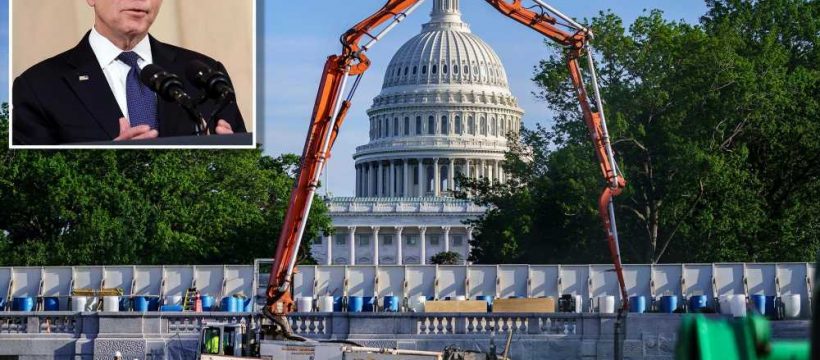More On:
infrastructure
House conservatives unveil budget proposal to counter Biden’s spending plans
Biden’s ‘infrastructure’ plan wages war on the suburban dream
Let’s make a deal: Biden meets with GOP to talk ‘compromise’ on $2.3T spend plan
McConnell optimistic about bipartisan infrastructure deal
The White House has laid out a more modest $1.7 trillion infrastructure bill to Senate Republicans, coming down from the $2.23 trillion initially proposed in response to an earlier GOP counter offer, White House Press Secretary Jen Psaki told reporters on Friday.
The new proposal still comes with a significantly higher price tag than the $650 billion counter-offer Republicans made in response to Biden’s initial plan, which Republican lawmakers have called a “progressive wish list.”
Republicans expressed reluctance to the White House’s first proposal, raising concerns about a number of provisions that would not traditionally be considered infrastructure, arguing that to get bipartisan support Democrats would need to narrow the scope.
In order to pay for the Biden package, the federal government would impose a slew of new taxes on businesses and the wealthy.
The new Biden counteroffer was discussed during a video conference call between a group of GOP senators and senior White House officials on Friday afternoon, with Psaki calling it “the art of seeking common ground.”
Psaki noted that some of the concessions made by the White House could be addressed in other legislation.
Senate Republicans previously unveiled a $568 billion proposal — spearheaded by GOP Sens. Shelley Moore Capito of West Virginia, Roger Wicker of Mississippi, Pat Toomey of Pennsylvania, Mike Crapo of Idaho and John Barrasso of Wyoming — in April, which excluded provisions laid out in Democrats’ plan that look to target issues like racial inequality, care for elderly and disabled people and climate change.
Under that plan, $299 billion would be allocated toward roads and bridges, $65 billion would go toward broadband expansion, $61 billion for public transit, $44 billion for airports, $35 billion for water systems, $20 billion for railways, $17 billion for inland waterways and ports, $14 billion for water storage and $13 billion for safety measures.
Share this article:
Source: Read Full Article




